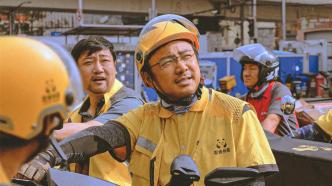
The title of "Reverse Life" has a double meaning. Gao Zhilei (Xu Zheng) was originally a technical backbone in a large factory. Who would have thought that his life would change suddenly? A layoff forced him to work as a "takeaway boy" to make a living. The situation where everything returned to the starting point can be called "reverse life".
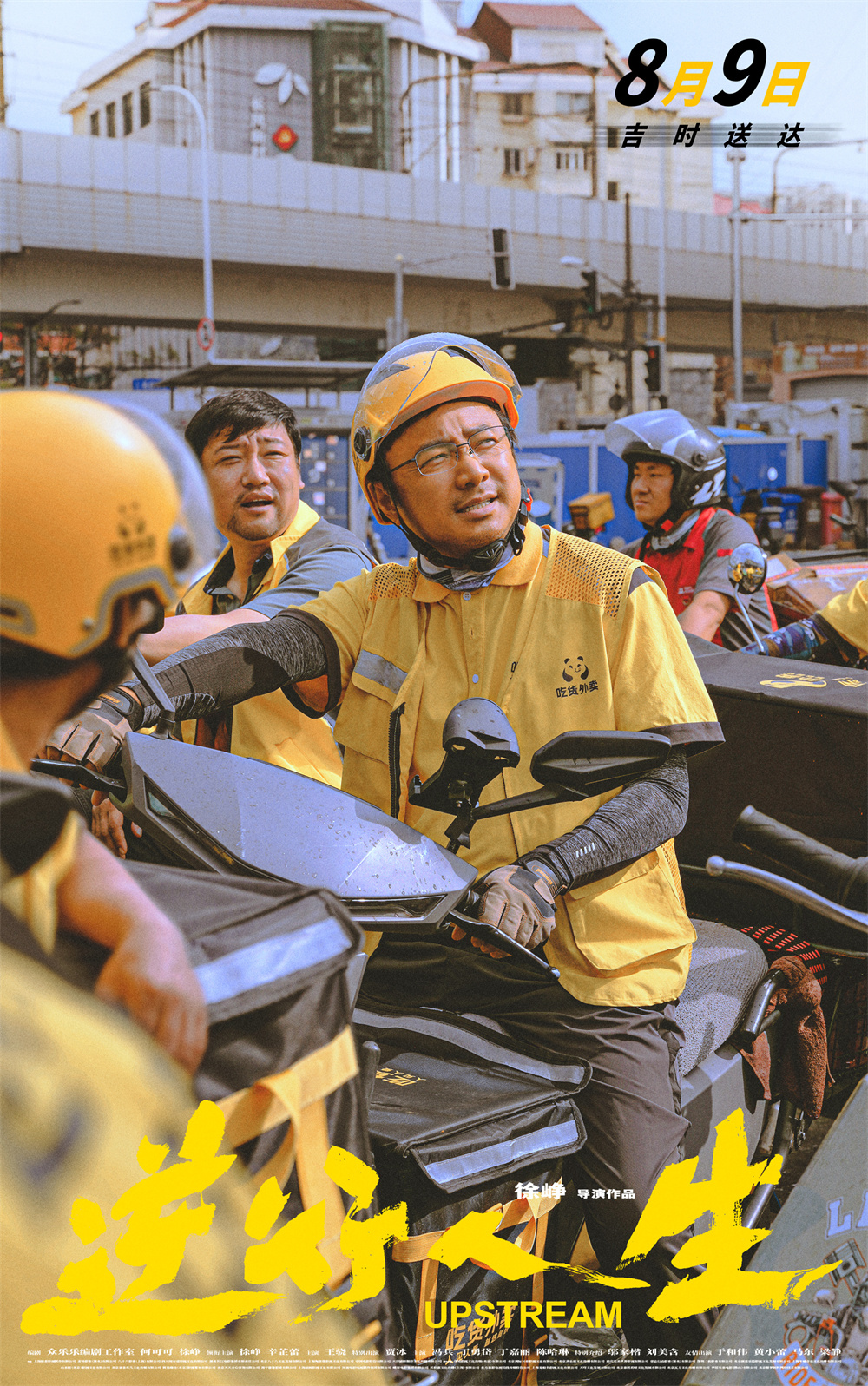
Xu Zheng as Gao Zhilei
But "going against the flow" does not only refer to Gao Zhilei's life setbacks. If being a food deliveryman is regarded as a "step back" in life, it is obviously a great misunderstanding of this profession. As shown in the movie, Gao Zhilei never knew the tricks and tricks of being a rider and encountered obstacles everywhere, until he became the "single king" with the help of everyone. The road was tortuous and difficult. Sometimes, in order not to exceed the time limit, riders are forced to take the risk of choosing to "go against the flow" (which is of course wrong). It can be seen that the so-called "going against the flow life" is more of a consideration and understanding of all grassroots workers.
It is not difficult to see the most distinctive feature of this film, which is that it directly faces social problems and does not whitewash reality. At the beginning of the film, it gave many workers a "heavy blow" - the main reason why Gao Zhilei was laid off was actually the "algorithm" he developed to optimize human resources. This heart-sinking scene is undoubtedly a satire and criticism of the meaningless "involution" in many industries today.
What is even more worrying is that even though Gao Zhilei took off what the stationmaster Zhu (played by Jia Bing) called "Kong Yiji's long gown", he still couldn't escape the pursuit of the "algorithm". The fewer takeout orders he delivered, the more negative reviews he received, and the more difficult the takeout orders sent by the system became. This is the main reason why Gao Zhilei never got the hang of it and fell into a vicious cycle.
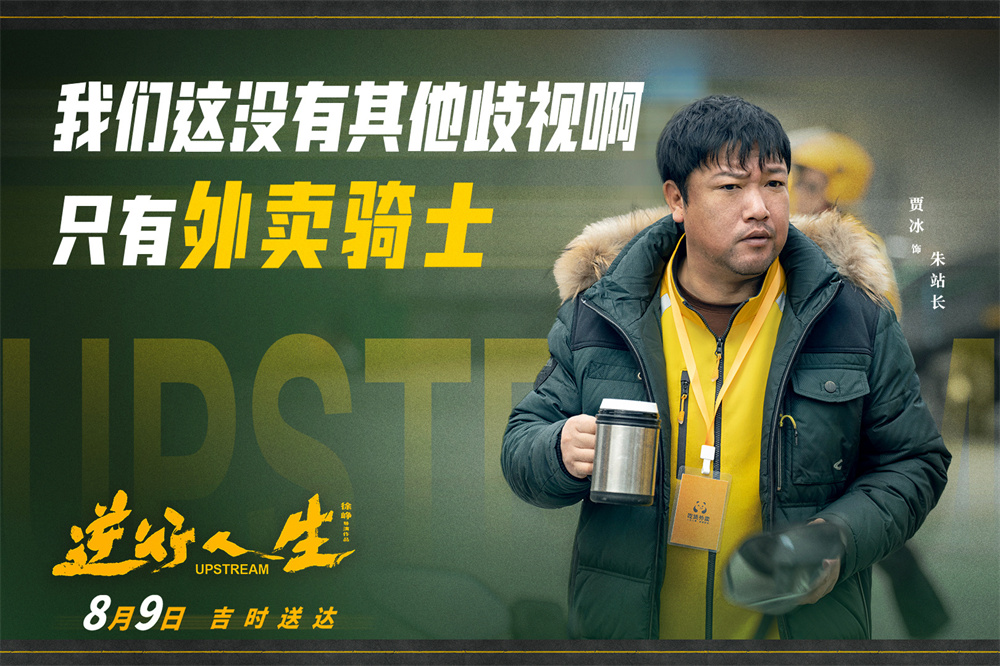
Jia Bing as Stationmaster Zhu
In other words, this film wants to offer the audience not only a bowl of "chicken soup for the soul" about the takeaway boy, but also a portrayal of real life. It is true that Gao Zhilei made a lot of jokes in the process of delivering food because of his "layman" and was "difficult" by some unreasonable customers, but his life difficulties fundamentally stem from being "trapped in the system". Whether it is the project pressure when he was a programmer or the hard target of the number of orders when he was a takeaway boy, why can't Gao Zhilei stop? When Dahei (played by Feng Bing), the "single king" of the takeaway station, finally said in tears "I'm too tired" because his colleagues accused him of being "too rollicking", and when Gao Zhilei's former competitor Sun Fendou also suffered the fate of being laid off, I believe that every audience in the theater will feel the same.
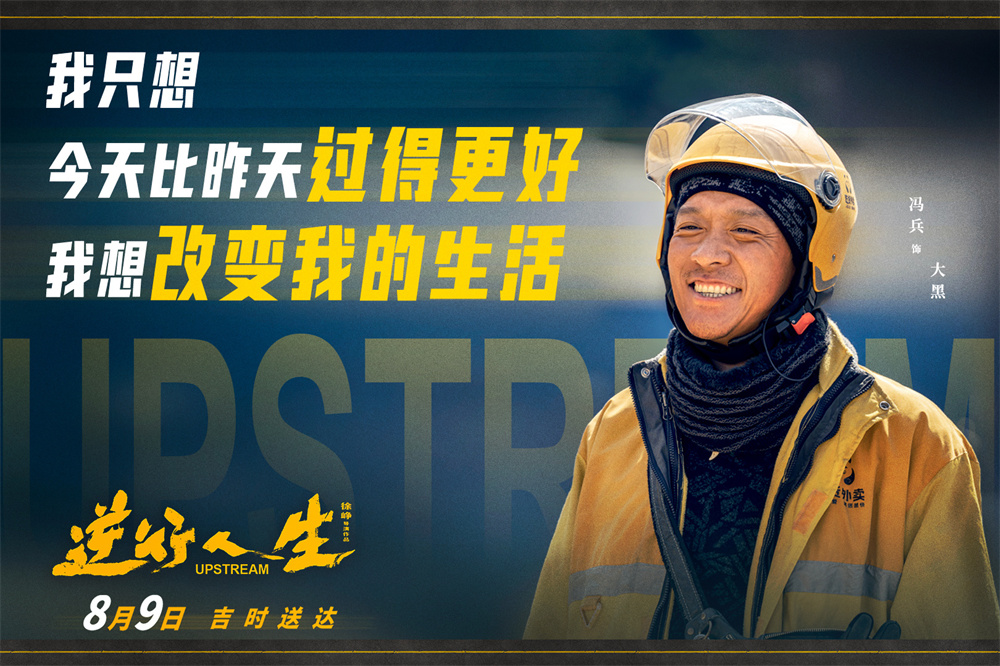
Feng Bing as Dahei
To be fair, although Gao Zhilei fell into the trough of life, he was still lucky after all, because he had a considerate, tolerant wife (Xin Zhilei) who was willing to share the joys and sorrows with him without complaint, a smart and lovely daughter who never complained even though she couldn't go to an international school because her father lost his job, and a father (Ding Yongdai) who seemed to be harsh and strict but actually always supported his son silently behind the scenes.
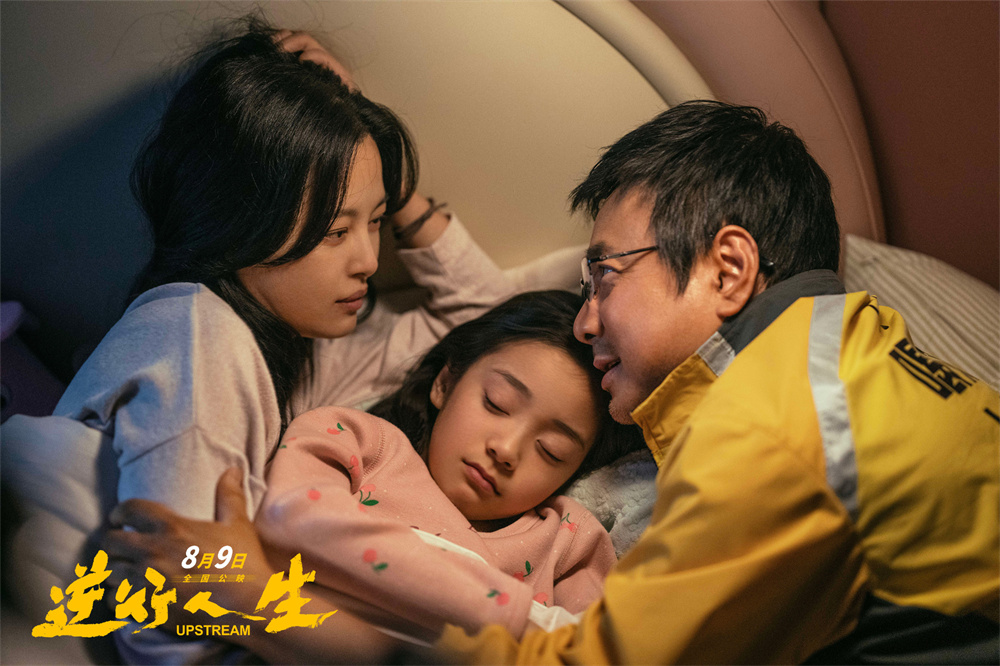
The caring attitude of Gao Zhilei from his wife and children
In fact, it is not just Gao Zhilei. Lao Kou (played by Wang Xiao) is reluctant to spend money, but he will keep buying lottery tickets in his spare time. It is not because he has the fluke mentality of getting rich overnight, but because he has to work hard to make money to take care of his daughter who has leukemia. The reason why this film spends a lot of space and uses a very delicate tone to narrate the family stories behind the deliverymen is not only for "sentimentalism", but also to remind every audience that they are not just "tools" for delivering food, but also "people" with flesh and blood.
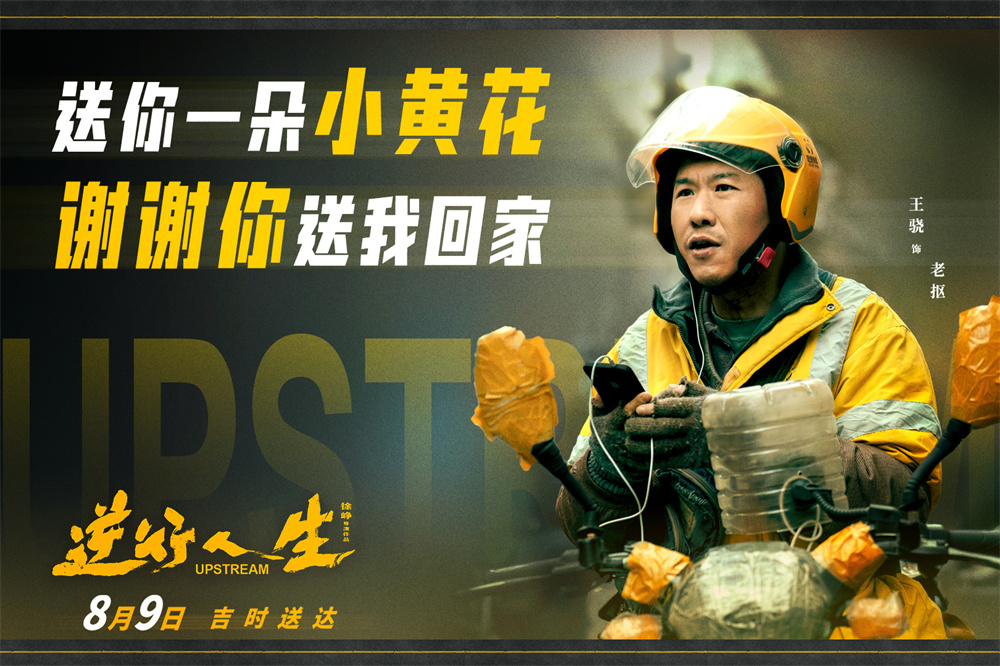
Wang Xiao as Lao Kou
The question that arises from this is, how should we view the job of delivering food? Gao Zhilei in this film changes from being impatient when he was a white-collar worker to being patient and tolerant when he moves. The implication of this change is obvious - we should all look at the delivery guys around us with a level eye. They neither need cheap sympathy nor should they be despised. These hardworking and down-to-earth workers who use their sweat and hard work to support their families should be respected and equal.
The film's realism doesn't stop there. At the end of the film, although Gao Zhilei temporarily saved the mortgage by becoming a "single king", he eventually moved to a small house with his family because, as he said, it was impossible to become a "single king" every month. This is exactly the question the film leaves for everyone - although Dahei, Laokou and others work very hard and can earn a decent income, the risks involved should not be ignored.
For example, Gao Zhilei and Lao Kou had encountered a car accident while delivering food, and even got within a stone's throw of the truck's wheels; for another example, although there is no "age discrimination" in the food delivery industry, an older rider like Lao Zhang (played by Zhang Zhanyi) will never be able to win in the competition with young people; not to mention, everyone has family changes and health problems. Therefore, while being moved by the lovely food delivery riders in the movie, perhaps what we need to think about more is: Can they get stronger job security? Can they get a safer working environment?
Of course, these questions are destined to be impossible to answer by this film. Whether literary and artistic works can reflect reality, but to change reality, we still have to work together outside the big screen. Gao Zhilei finally got the attention of the CEO of the takeaway company with the "Lulutong" software he developed, but most takeaway boys obviously don't have such an opportunity. Therefore, this is not only a beautiful tomorrow designed by this film specifically for Gao Zhilei, but also hopes to encourage more people to pay attention to the real situation of takeaway boys and find more feasible solutions for their future.
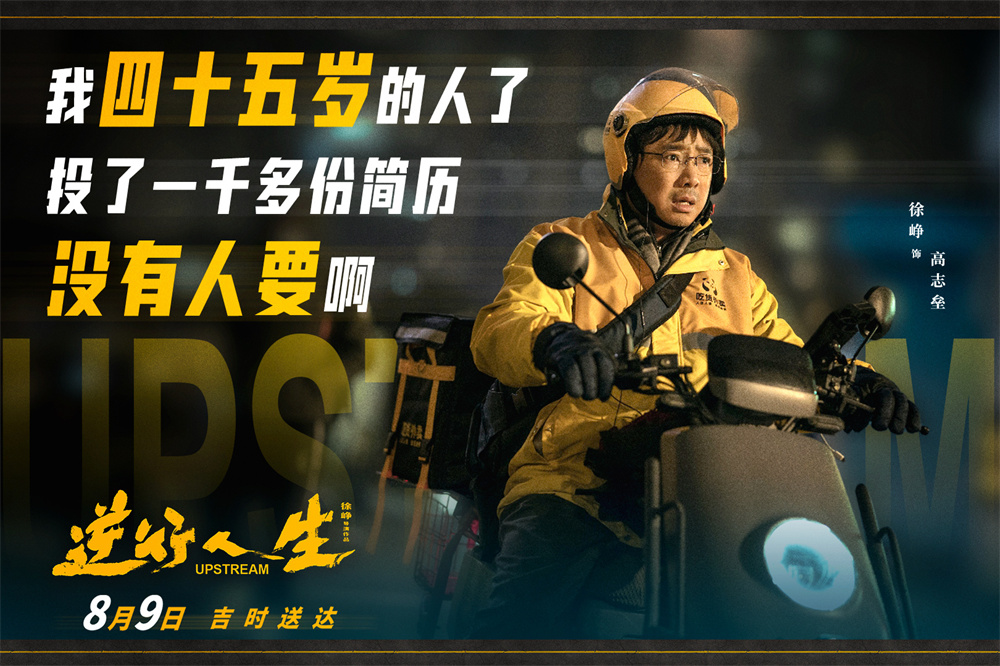
Stills from "Reverse Life"
In fact, every generation has its own mission and its own predicament. The most touching part of this film is the bond between Gao Zhilei and his father. When the father found out that his son was unemployed, he was furious on the surface, but in fact he wanted to share his son's worries through his own efforts; the son was very worried about his father's illness, but he couldn't help but blurt out hurtful words during the quarrel. This typical Chinese father-son relationship is heartbreaking, but it also reveals the lifelike nature of this film.
When the father took out a photo of himself working in another place when he was young and encouraged his son, "I think being a delivery man is also good," I believe that it was not just Gao Zhilei in the movie who had tears in his eyes. No matter what stage of life we are in or what kind of life problems we have to face, some beliefs can always transcend time and become the source of strength for us to protect our lives and the people around us - those kind and tenacious people are always worthy of respect and deserve a better life. Therefore, the warmth of "Reverse Life" belongs to every hard-working you.
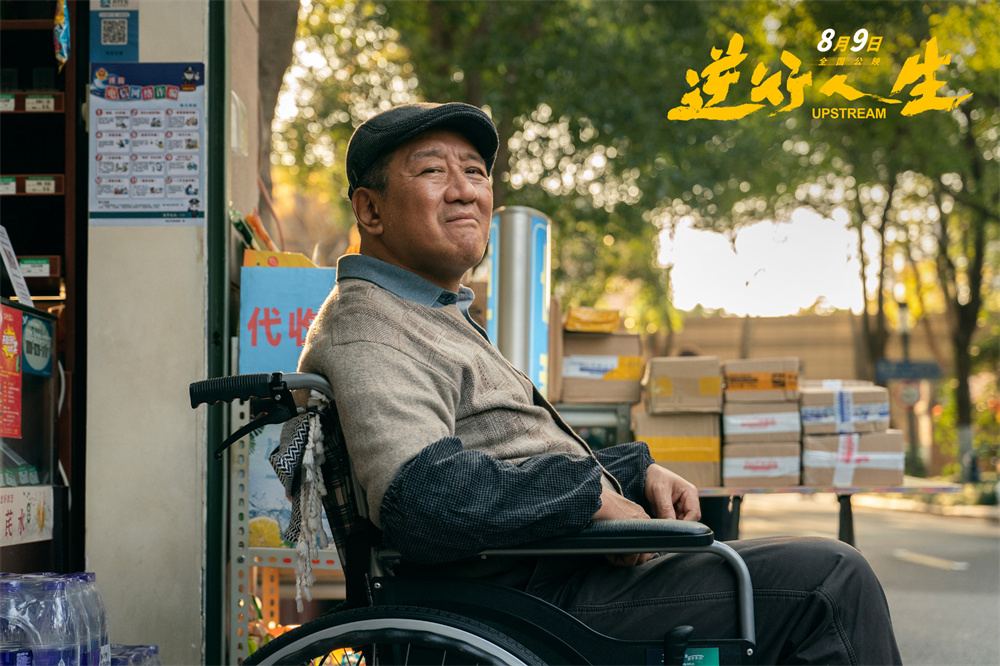
Ding Yongdai as Father


